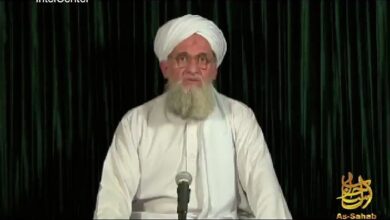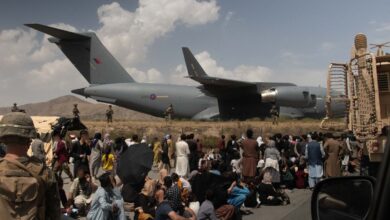Sri Lanka’s prime minister Mahinda Rajapaksa resigns amid economic and political turmoil

Sri Lanka’s prime minister Mahinda Rajapaksa has offered his resignation amid widespread protests in the country as it suffered through its worst economic and political crisis since independence.
“The prime minister has sent his letter of resignation to the president,” an unnamed official told Reuters on Monday, declining to be named.
The move comes days after president Gotbaya Rajapaksa, the prime minister’s younger brother, requested the PM to step down as a solution to the ongoing political crisis in the country in a special meeting.
President Rajapaksa is also expected to invite political parties now in Parliament to form an all-party Cabinet, following the resignation of the prime minister.
The resignation of the prime minister comes amid heavy protests in Sri Lanka that have been ongoing for weeks now with supporters of the government clashing on Monday with anti-government protesters outside Mahinda Rajapaksa’s office.
Local reports said hundreds of troops have been deployed and an indefinite curfew imposed in Colombo after the clash between the two factions.
Police also used tear gas and water cannons to disperse the protestors from both sides after they started clashing with each other
Supporters of the prime minister rallied outside his office after reports said that he might step down.
“Whose power? Mahinda’s power!” government supporters shouted as the compound gates swung open to allow them inside.
The supporters attacked the anti-government protestors — who have been demonstrating since 9 April — with clubs, demolishing and later burning down their tents.
Police said that at least 20 people were injured in the attack.
Thousands of supporters of the Prime Minister Rajapaksa were brought in buses from all over the country to converge at his official residence.
The PM also addressed the group before resigning, saying he will do what is best for the public interest.
The attack on protestors came a day after Mr Rajapaksa was heckled during his first public outing since nationwide protests erupted. He was visiting one of the holiest Buddhist temples, housing a tree said to be 2,300 years old, in Anuradhapura, Sri Lanka.
For several months, Sri Lankans have endured long lines to buy fuel, cooking gas, food and medicine, most of which come from abroad.
Shortages of hard currency have also hindered imports of raw materials for manufacturing and worsened inflation, which surged to 18.7 per cent in March.
Meanwhile, on Monday, the trade unions began a “Week of Protests” demanding that the president step down. Trade union activist Saman Rathnapriya told the media that more than 1,000 unions representing health, ports, education, and other key service sectors had joined the movement.
During the week, he said, the workers will stage demonstrations at their workplaces across the country. At the end of the week, they will launch a huge march to parliament, demanding President Rajapaksa’s removal and a new government.





